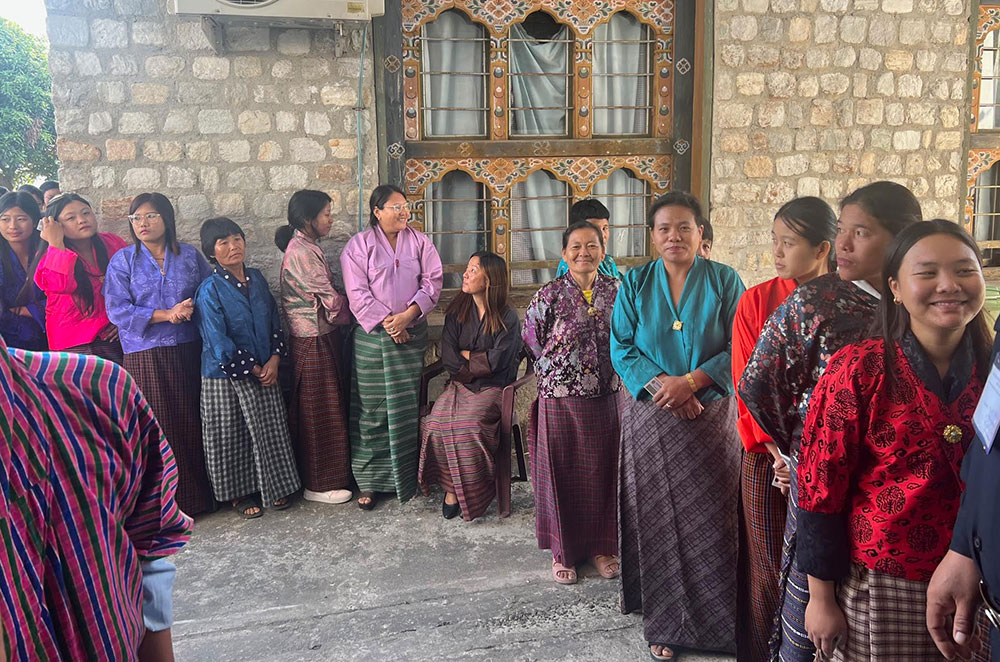… the dzongkhag elected the lone PDP candidate in the east
In Samdrupjongkhar, the People’s Democratic Party (PDP) strategically leveraged its significant victory in 39 constituencies during the primary elections as a key element of its campaign for the general elections conducted on January 9.
Besides Trongsa, this is the only dzongkhag that has its constituencies electing candidates from different parties. While Bhutan Tendrel Party (BTP) won the Dewathang-Gomdar constituency, voters of Jomotshangkha-Martshala stuck with the PDP since the primaries.
Emphasising the prospect of forming the government, PDP successfully convinced voters and secured one National Assembly seat to represent the Jomotsangkha-Marshala constituency, which has 12,615 registered voters. PDP’s lone candidate, Younten Phuntsho, wining from the eastern region, is likely to hold a ministerial portfolio.
The primary results played a crucial role in influencing voters’ decisions, according to a village elder from Pemathang gewog, previously known as Dalim. “There was an indication the gora (horse) party might come into power,” said a village elder who voted for PDP.
Another voter from Martshala gewog said that upon realising the opportunities and advantages of the ruling government, he and his family favoured PDP. For this reason, residents of Pemathang, Samrang, and other southern belt dzongkhags rallied behind PDP, with Jomotsangkha and Jangsa polling booths delivering maximum votes- 290 and 191 votes respectively.
BTP received only 204 votes from these two polling stations.
Younten Phuntsho, 43, secured 405 votes in Pemathang and 105 votes from the Samrang polling station. BTP’s Jigme Wangchuk secured only 48 votes from Samrang and 377 votes in Pemathang.
Younten Phuntsho’s win, securing 4,440 votes from both Electronic Voting Machines (EVM) and postal ballots, highlighted the party’s dedicated commitment to His Majesty’s vision.
However, in Wangphu chiwog, some voters opted for a new face over the incumbent, citing a desire for change.
The oldest candidate, Jigme Wangchuk, 44, faced an “incumbency factor” in the eyes of voters in Samdrupcholing drungkhag. “Time has changed, and people wanted to allow newcomers,” said a resident of Samdrupcholing town.
Jigme Wangchuk served three consecutive terms as a member of the National Council from 2008 to 2023. “Incumbency factor could have impacted his votes,” said another voter from the same town.
Of the 4,040 votes secured, Jigme Wangchuk lost 322 votes in EVM and 78 postal ballots to PDP. BTP, which secured 1,555 votes, was also defeated by PDP and DPT in the primary round by 1,557 and 120 votes, respectively.
Despite success in various constituencies, PDP’s strategy did not yield the same results in the Dewathang-Gomdar constituency, where BTP’s Tshering Penjor secured a landslide victory with 6,300 votes. Tshering Penjor’s strategic approach, combined with strong support from Wangphu gewog, played a pivotal role in defeating PDP’s Kelzang Phuntsho.
Reflecting on the electoral outcome, Tshering Penjor, 43, acknowledged the competitive nature of the race and expressed gratitude to the team and voters. “I’m grateful for the support we received from the voters and it’s time to unite for the common good,” he said. “I’m ready to bridge any divides and work together with members from both parties to address the challenges our community faces.”
Kelzang Phuntsho, 41, on the other hand, secured 4,887 votes but couldn’t secure victory in his gewog. This was the third time he contested the parliamentary elections. He participated in the National Council elections in 2018 and 2023.
While Phuntshothang gewog supported PDP with the highest 439 votes and BTP with 288 votes, Dewathang Thromde favoured BTP with 427 votes followed by 276 and 270 votes at Gomdar gewog centre and Orong polling stations, respectively. Kelzang Phuntsho secured 197 votes from Dewathang Thromde.
While Samdrupjongkhar is pleased to have representation from both ruling and opposition parties, concerns arise about potential divisions based on recent elections. Some residents worry about capable candidates being deprived of ministerial roles for supporting one particular party that will be in the opposition.
Observers agree that PDP’s lone candidate from Jomotsangkha-Martshala will represent in the Cabinet, but there are concerns about balancing regional interests.
They suggest electing the National Assembly Speaker from the opposition to promote regional balance and unity among the people, emphasising the need for thoughtful governance in post-election scenarios.
“It will set a good precedent if such an initiative from the government is considered,” one analyst based in Thimphu, said. “It will also help the party build its image and garner support from the eastern region in future elections.”
Contributed by
Rinzin Wangchuk


